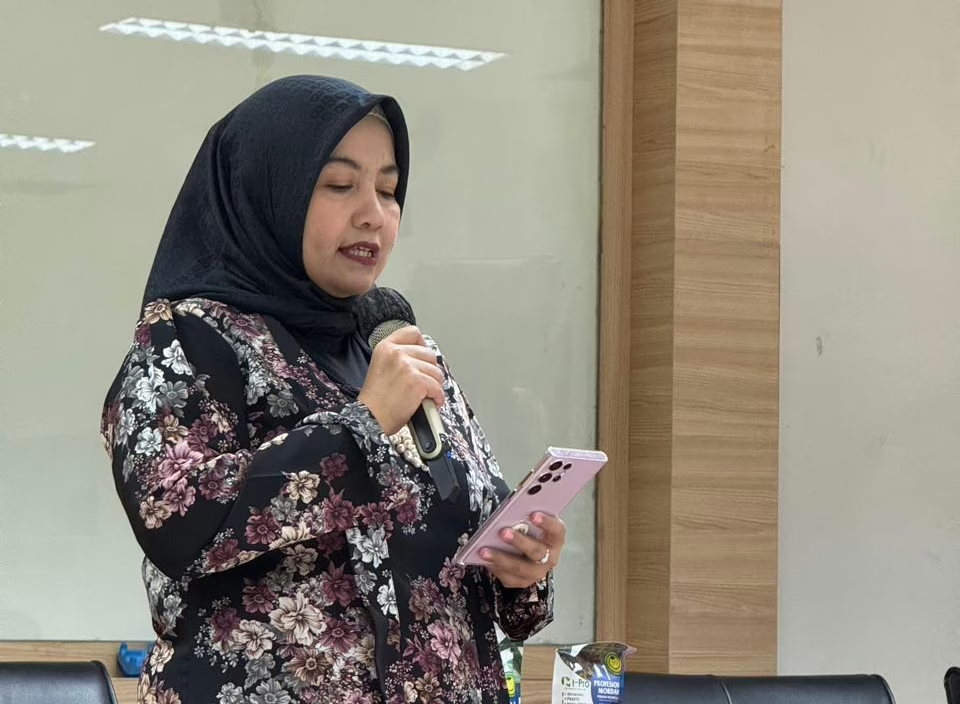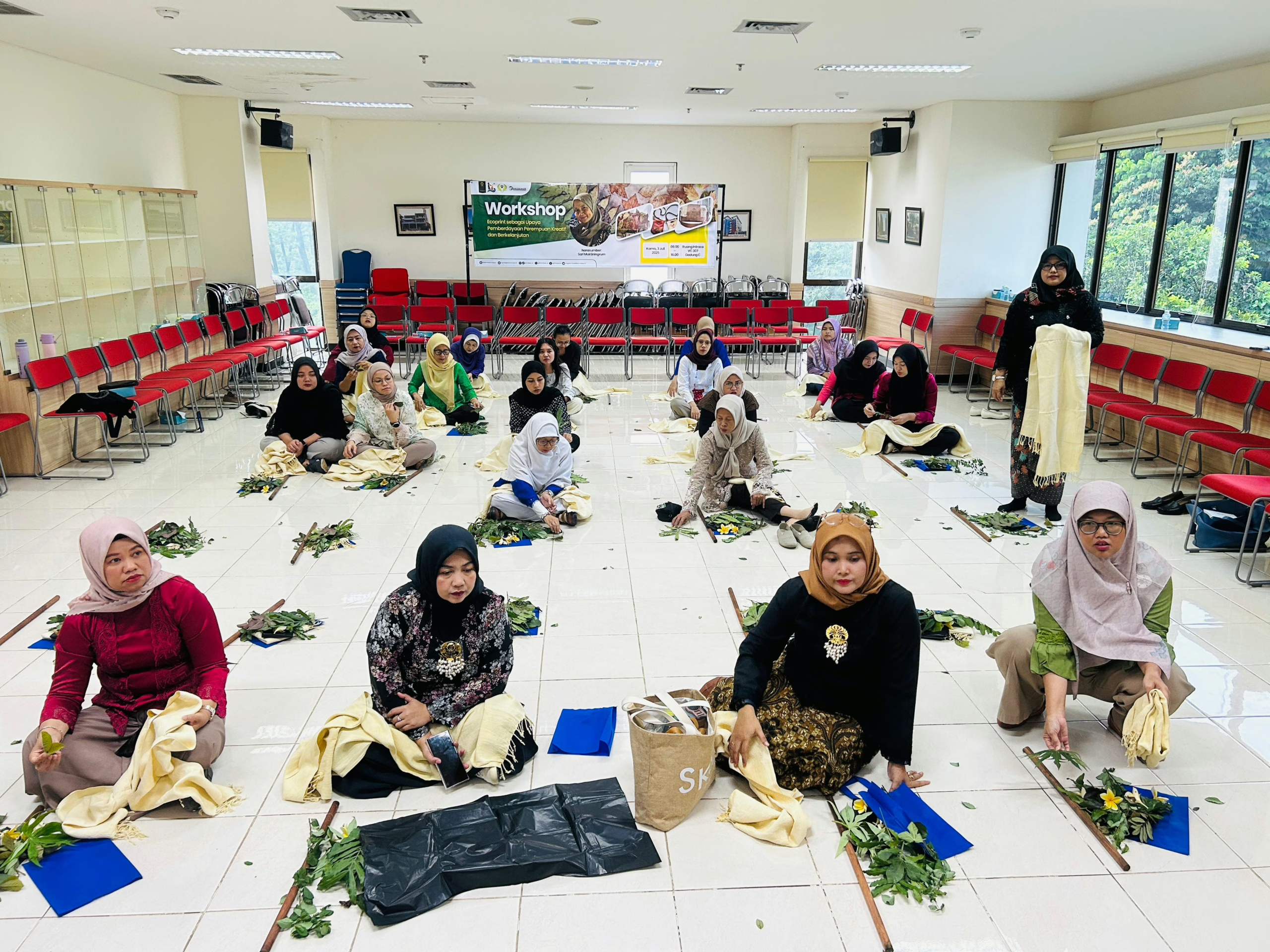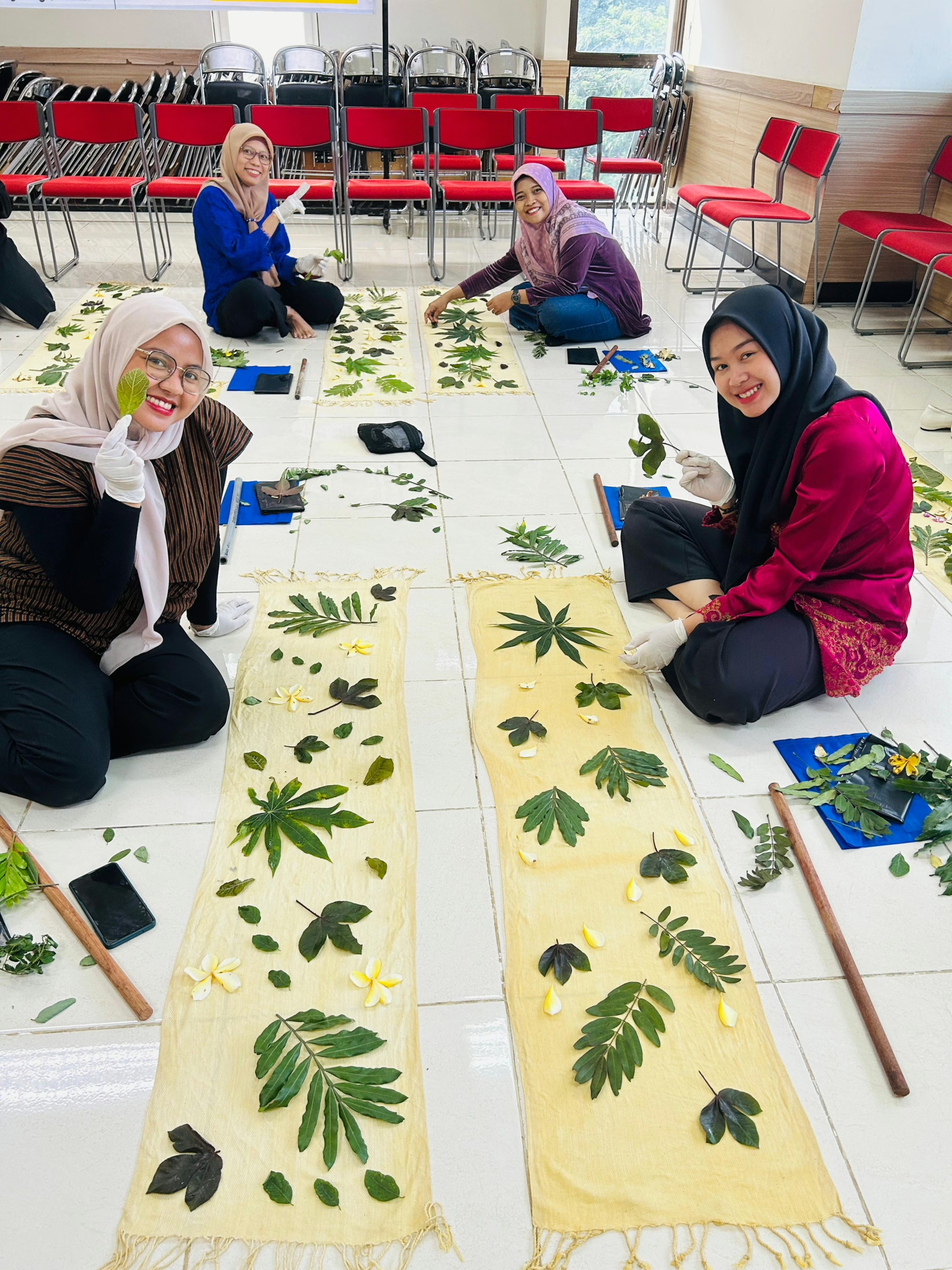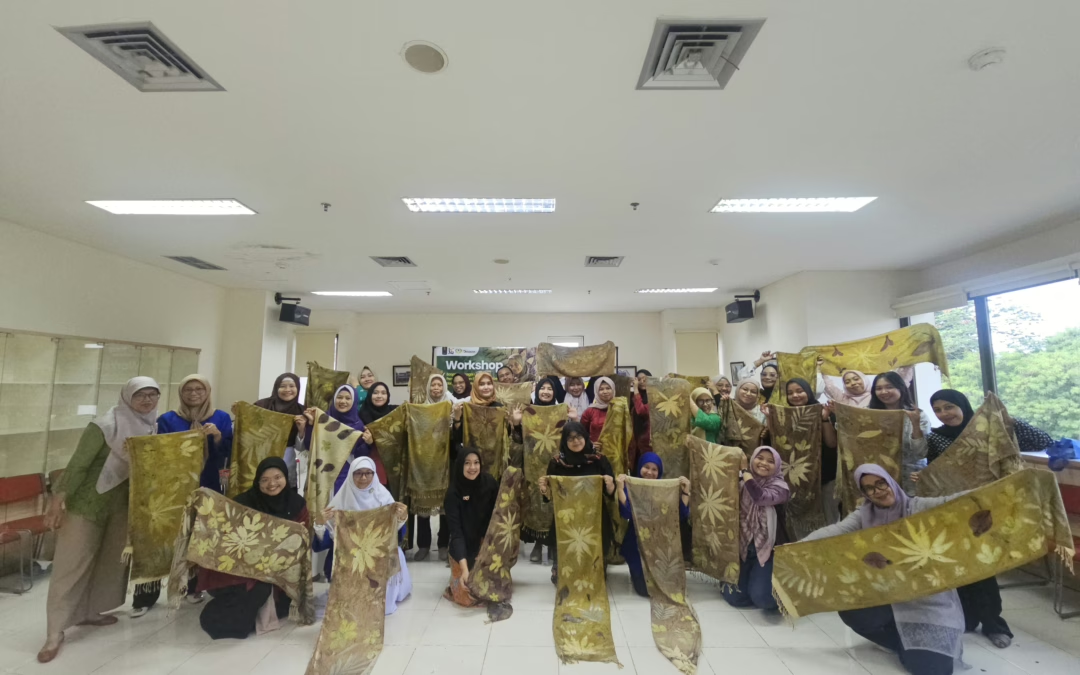Depok-As part of its commitment to sustainability and gender equality, the Family Women’s Association (IWK) of the Vocational Education Program at the Universitas Indonesia (UI) held an Ecoprint Workshop in collaboration with Dengdaunan, a local Bogor brand promoting a nature-based creative industry concept. Forty female participants, including lecturers and educational staff within the UI Vocational, attended the event.
The workshop, held in the UI Vocational Intraco Room, introduced the ecoprint technique—a fabric dyeing process that utilizes leaves, flowers, stems, and twigs as print media without the use of synthetic chemicals. Besides being environmentally friendly, this technique is also rich in local wisdom and individual creativity. The ecoprint dyeing technique was first developed in the 2000s by American textile artist India Flint. With increasing public awareness of environmental sustainability issues, the ecoprint dyeing technique is considered a suitable option to implement as a form of support for these issues.
 (Photo: Chair of UI Vocational IWK, Dewi Anggraeni Padang, giving a speech at the workshop)
(Photo: Chair of UI Vocational IWK, Dewi Anggraeni Padang, giving a speech at the workshop)
The Chair of the UI Vocational IWK, Dewi Anggraeni Padang, stated that this activity not only aims to provide skills training but also serves as part of UI Vocational’s active contribution to the Sustainable Development Goals (SDGs). “This workshop has many benefits for women, while also supporting environmental aspects. Ecoprint is an alternative textile production that does not pollute water, soil, or air. This activity is also in line with the spirit of UI GreenMetric and UI’s commitment to sustainable development,” Dewi said.
The ecoprinting technique introduced in this workshop directly represents several targets in the SDGs, such as gender equality (SDG 5), which empowers women with new skills that can be developed into a source of creative economy. Furthermore, by using natural materials and a production process that minimizes waste, ecoprinting strengthens sustainable consumption and production (SDG 12). Furthermore, by using natural materials and avoiding synthetic chemicals that have the potential to pollute the environment and accelerate ecosystem destruction, this technique contributes to climate change mitigation efforts (SDG 13).
 (Photo: Ecoprint technique process on a scarf carried out by UI Vocational IWK)
(Photo: Ecoprint technique process on a scarf carried out by UI Vocational IWK)
Through the direct involvement of instructors from the Dengdaunan team, participants were guided through each step of the ecoprinting process, from attaching the leaves to the fabric, through steaming and oxidation, to rinsing and natural drying. All stages prioritize environmentally friendly principles and energy efficiency.
 (Photo: Atmosphere of the ecoprint workshop with UI Vocational IWK)
(Photo: Atmosphere of the ecoprint workshop with UI Vocational IWK)
Tri Andini Arifah, one of the UI Vocational staff who attended the workshop, said that the activity provided many new insights for her. “I learned that each plant used in this ecoprinting technique produces different colors. Of course, I can apply this ecoprinting technique at home and it can become a platform for entrepreneurship,” said Andin. Through this activity, UI Vocational reaffirmed its active role as an educational institution that not only produces work-ready graduates but also agents of social change that support the achievement of sustainable development in a real way.


